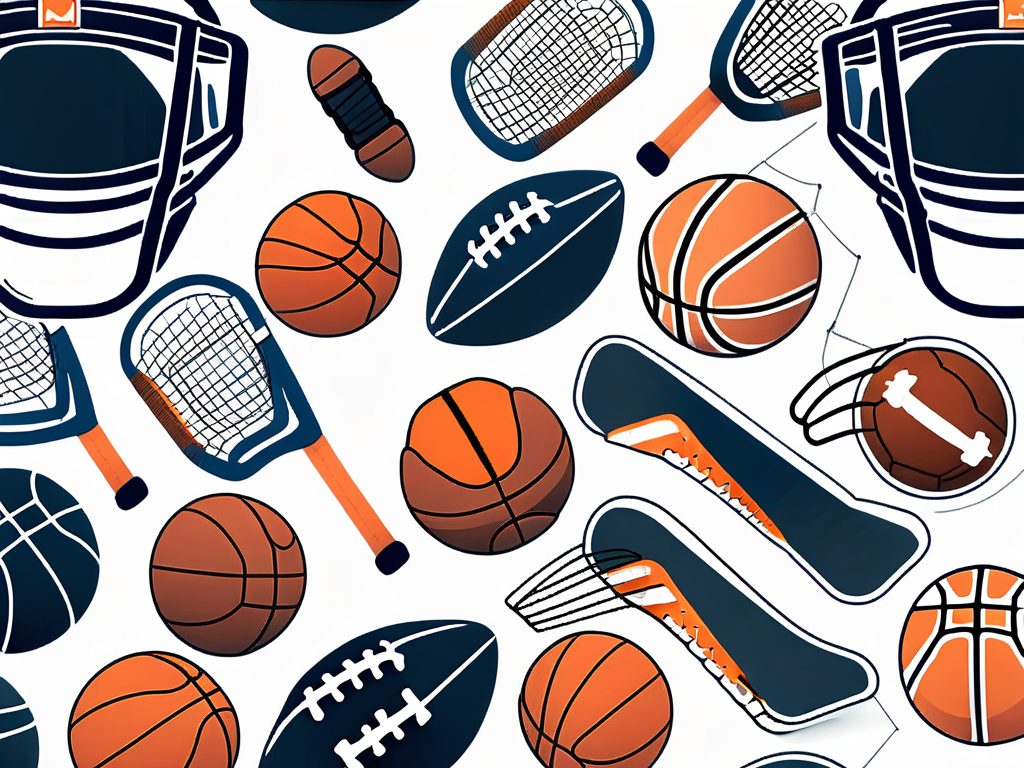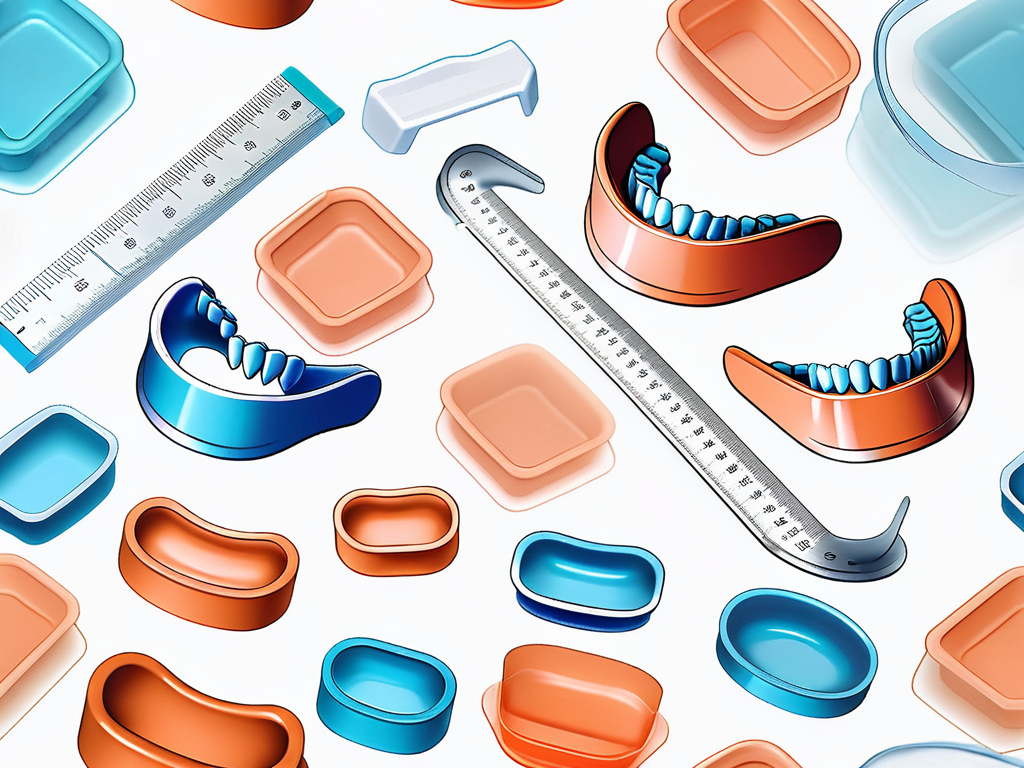Sports injuries can have a significant impact on an athlete's performance and overall well-being. One way to prevent such injuries is by using the right mouth guard. Mouth guards play a crucial role in protecting the teeth, jaws, and soft tissues of the mouth during sports activities.
Understanding the Importance of Mouth Guards in Sports
Sports, especially contact sports, pose a considerable risk of dental injuries. Mouth guards provide a protective barrier between the teeth and soft tissues of the mouth, reducing the chances of tooth fractures, broken jaws, and lip lacerations. They absorb and distribute the impact of a blow, minimizing the force exerted on vulnerable areas.

The Role of Mouth Guards in Injury Prevention
A mouth guard forms a cushioning layer that helps to dissipate the force of a blow, preventing direct contact between the teeth and the opposing force. By absorbing and redistributing the shock, mouth guards reduce the risk of injuries like knocked-out teeth, displaced jaws, and concussions.
It's worth noting that sports-induced dental injuries not only lead to pain and discomfort but also result in substantial financial implications for athletes. By wearing a mouth guard, athletes can avoid costly dental treatments and potential long-term consequences.
The Science Behind Mouth Guard Protection
Mouth guards function through a combination of compression and dissipation. When subjected to an impact, a properly fitted mouth guard compresses to absorb the pressure, shielding the teeth from the immediate force. It then distributes the energy over a larger area, reducing the intensity of the blow to consecutive areas of the mouth.
Additionally, mouth guards act as a buffer between the upper and lower jaws, preventing jaw fractures and minimizing the risk of damage to the temporomandibular joint (TMJ). This function is particularly crucial for contact sports like boxing, football, and hockey, where direct blows to the jaw are common.
Furthermore, mouth guards have been found to have a positive impact on an athlete's overall performance. Research shows that wearing a mouth guard can enhance an athlete's ability to breathe properly during physical exertion. By improving airflow, mouth guards help athletes maintain optimal oxygen levels, reducing fatigue and improving endurance.
Moreover, mouth guards can also have a psychological benefit. Athletes who wear mouth guards may feel more confident and secure, knowing that they have taken proactive steps to protect their teeth and jaws. This increased confidence can translate into improved focus and performance on the field or court.
Lastly, mouth guards are not a one-size-fits-all solution. Custom-fitted mouth guards, made by dental professionals, offer the best protection and comfort. These mouth guards are designed to fit the specific contours of an athlete's mouth, ensuring a snug and secure fit that allows for easy breathing and speech.
In conclusion, mouth guards play a vital role in protecting athletes from dental injuries during sports activities. By absorbing and distributing the force of impacts, mouth guards reduce the risk of tooth fractures, jaw injuries, and lip lacerations. Additionally, mouth guards provide financial benefits by preventing costly dental treatments. Understanding the science behind mouth guard protection highlights the importance of this essential piece of sports equipment. So, whether you're a professional athlete or a weekend warrior, don't forget to wear your mouth guard and keep your smile safe!
Different Types of Sports Mouth Guards
When it comes to mouth guards, athletes have a range of options to choose from, depending on their specific needs and preferences. The three main types of mouth guards are:
Stock Mouth Protectors
Stock mouth protectors are pre-formed and come ready to use. They are typically inexpensive but offer limited fit and protection. As they are not customizable, athletes often find them uncomfortable and bulky, which can affect speech and breathing during sports activities.
Boil and Bite Mouth Protectors
Boil and bite mouth protectors are made from a thermoplastic material that softens when boiled. After boiling, athletes bite down on the material to create a custom fit. This type offers a better fit than stock mouth protectors and, therefore, a higher level of protection.
While boil and bite mouth protectors are more comfortable than stock options, they may still require adjustments to ensure an optimal fit. Athletes should carefully follow the manufacturer's instructions to achieve an accurate and secure fit.
Custom-fitted Mouth Protectors
Custom-fitted mouth protectors are the most effective and comfortable option available. These mouth guards are created specifically for an individual athlete by taking impressions of their teeth and creating a customized mold. Custom-fitted mouth guards offer the best fit, ensuring maximum protection and minimal interference with breathing and speaking.
Although custom-fitted mouth guards may be more expensive than other types, their superior fit and comfort make them worthwhile, especially for athletes engaged in high-impact sports.
It is important to note that the benefits of using a mouth guard extend beyond just protecting the teeth. Mouth guards also help cushion blows to the jaw, reducing the risk of jaw fractures and concussions. Additionally, they can prevent lacerations to the lips, tongue, and cheeks by acting as a barrier between the soft tissues and the teeth.
When selecting a mouth guard, athletes should consider the nature of their sport and the level of contact involved. For high-impact sports such as football, hockey, and martial arts, custom-fitted mouth guards are highly recommended due to their superior protection. However, for low-impact sports like tennis or cycling, boil and bite mouth protectors may provide sufficient protection at a more affordable price.
Choosing the Right Mouth Guard for Your Sport
Selecting the appropriate mouth guard for your sport requires careful consideration of several factors.

Protecting your teeth during sports activities is crucial for maintaining oral health and preventing serious injuries. Mouth guards act as a cushion, absorbing the impact of blows to the face and reducing the risk of broken teeth, jaw fractures, and soft tissue injuries.
Factors to Consider When Selecting a Mouth Guard
First, assess the risk level of your sport. Contact sports like rugby, boxing, and wrestling carry a higher risk of dental injuries, necessitating more robust mouth guard protection. Non-contact sports such as tennis or cycling have a lower risk, allowing for less substantial mouth guards.
Second, consider comfort and fit. A properly fitting mouth guard should not restrict breathing or speech. It should be comfortable to wear, so athletes are more likely to consistently use it during sports activities.
Furthermore, the material of the mouth guard is essential in determining its comfort and effectiveness. Custom-fitted mouth guards made by dental professionals offer superior fit and protection compared to boil-and-bite or stock mouth guards available over the counter.
Mouth Guards for Contact Sports vs. Non-contact Sports
Contact sports require mouth guards with additional padding and shock-absorbing capabilities. They should cover both the upper and lower jaw for optimal protection against direct blows to the mouth and jaw. Non-contact sports may allow for lighter mouth guards that primarily protect against accidental impacts or falls.
It is important to replace your mouth guard if it shows signs of wear and tear, such as tears, holes, or a loose fit. Regularly inspecting your mouth guard for damage ensures that it continues to provide adequate protection for your teeth and mouth.
Proper Care and Maintenance of Your Mouth Guard
Maintaining proper hygiene and ensuring the longevity of your mouth guard are crucial for continued protection.
Cleaning Your Mouth Guard
After each use, rinse your mouth guard with warm water to remove saliva and debris. It's essential to clean the mouth guard thoroughly using a mild soap or toothpaste and a soft toothbrush. Avoid using hot water or abrasive cleaners that could damage the material.
Keep your mouth guard in a well-ventilated container when not in use to prevent bacterial growth. Additionally, storing it away from extreme temperatures and direct sunlight will help maintain its shape and integrity.
When to Replace Your Mouth Guard
Over time, mouth guards can wear down, become less effective, or develop tears or holes. To ensure optimal protection, the mouth guard should be replaced regularly, depending on the manufacturer's recommendations or your dentist's advice. Inspect the mouth guard periodically for signs of wear or damage, and replace it promptly when necessary.
Common Misconceptions About Mouth Guards
Debunking Mouth Guard Myths
There are several misconceptions surrounding mouth guards that can hinder their use and effectiveness. One common myth is that only professional athletes or those engaged in high-intensity sports need mouth guards. In reality, dental injuries can occur in any sports activity or even during recreational play. It is crucial for athletes of all levels and sports to protect their teeth and mouth.

Another misconception is that mouth guards restrict breathing and impact performance. Modern mouth guard designs have evolved to provide a secure yet comfortable fit that allows proper breathing and speech. Athletes should carefully choose a suitable mouth guard to ensure both protection and optimal performance.
The Truth About Mouth Guard Comfort and Performance
Contrary to popular belief, wearing a properly fitted mouth guard does not hinder an athlete's performance. In fact, the added sense of protection can boost confidence, allowing athletes to focus more on their game and perform at their best. By safeguarding their teeth and mouth, athletes can enhance their performance without compromising safety.
Preventing sports injuries should be a top priority for athletes, coaches, and parents. By understanding the importance of mouth guards, selecting the right type, and properly maintaining them, athletes can significantly reduce the risk of dental injuries and concentrate on achieving their sporting goals. Remember, prevention is always better than treatment.













